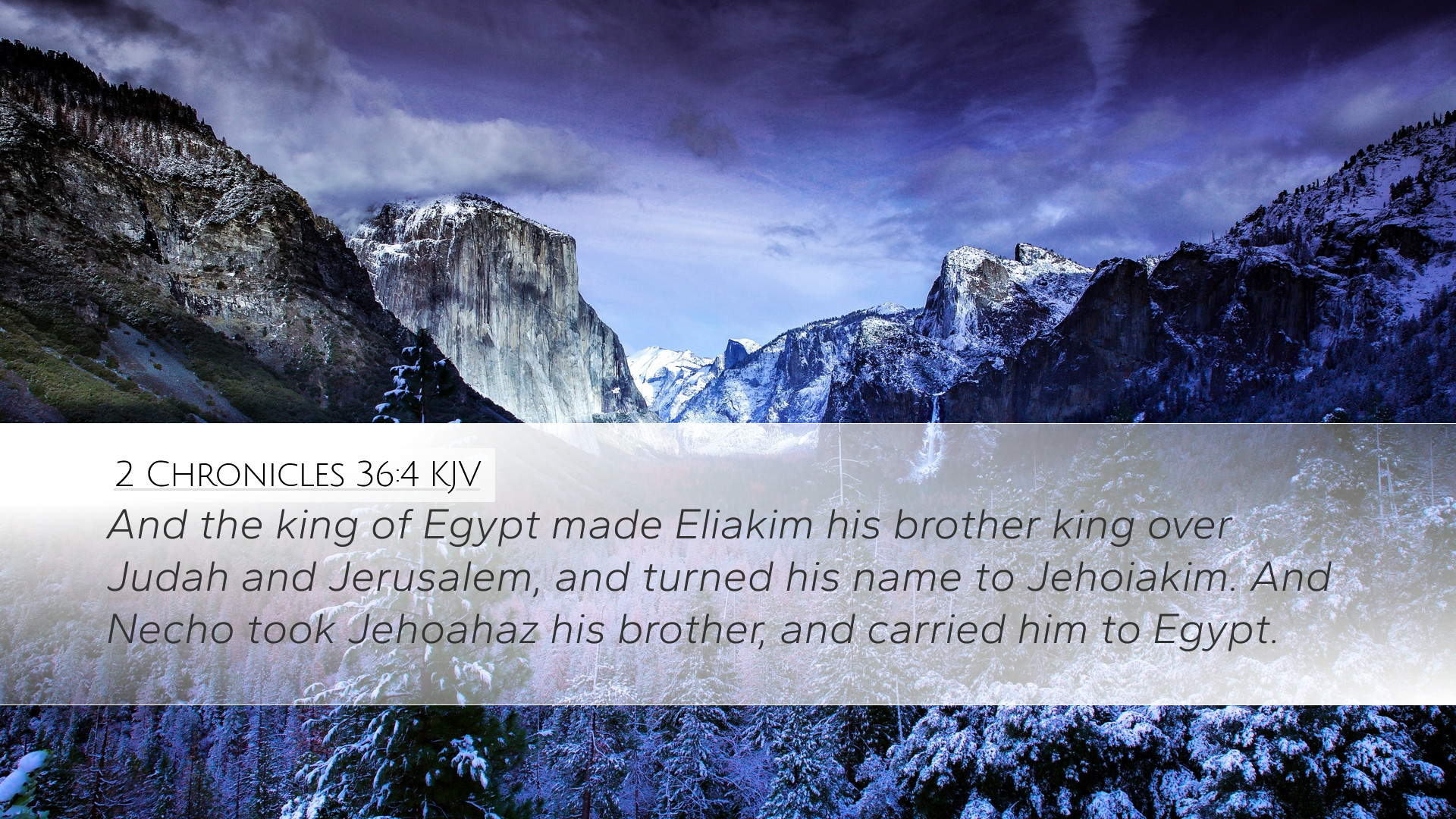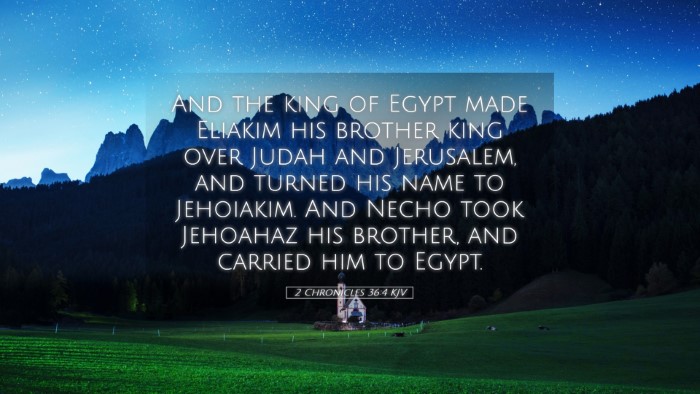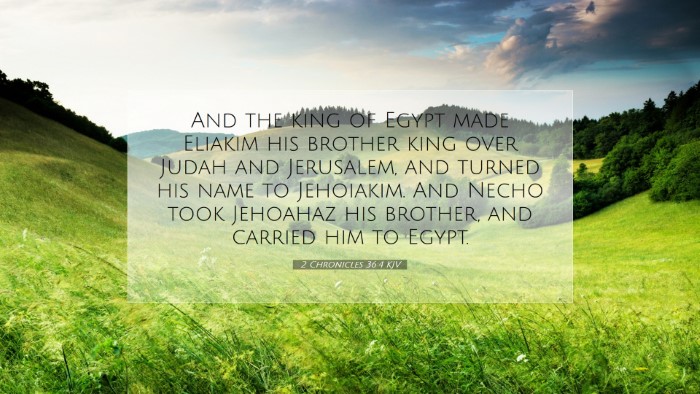2 Chronicles 36:4 - Commentary Summary
Verse: "And the king of Egypt made Eliakim the son of Josiah king in the room of his father Josiah, and turned his name to Jehoiakim, and took Jehoahaz away: and he came to Egypt, and died there."
Introduction
This verse encapsulates significant political transitions within the Kingdom of Judah at the end of the monarchy. The actions described have implications not only for the Jewish people but also for their relationship with surrounding nations, particularly Egypt. Understanding this scripture requires a thorough exploration of historical, theological, and moral lessons.
Historical Context
The events surrounding the reign of Jehoiakim and Jehoahaz depict a turbulent period in Judah's history. Following the death of Josiah, a revered king who prompted reforms, the transition of power was influenced by the geopolitical climate dominated by Egypt and Babylon. Jehoahaz, having ascended to the throne, was soon deposed by Pharaoh Necho, illustrating the vulnerability of Judah amidst imperial strife.
- Pharaoh Necho's Influence: Necho's intervention reflects ancient Near Eastern politics where foreign powers orchestrated leadership in smaller kingdoms to serve strategic interests.
- Shifts in Power: The renaming of Eliakim to Jehoiakim signifies a severance from his roots and a submission to foreign control.
Theological Insights
2 Chronicles 36:4 invites theological reflection regarding God's sovereignty amid human agency. While the choices of the rulers are evident, it is critical to consider the overarching narrative of God's covenant with Israel.
- God's Providence: Despite the apparent chaos, God orchestrates events towards the fulfillment of His promises, maintaining covenant fidelity even when His people stray.
- Judgment and Mercy: This transition of kings serves as both a judgment upon Israel for their disobedience and an opportunity for mercy, as God continues to work through history to draw His people back to righteousness.
Lessons for Leaders
The actions of leaders described in this passage offer crucial lessons for contemporary leaders, both in the church and in the civic realm.
- Accountability to God: Just as Jehoiakim's reign began under foreign influence, leaders must recognize their ultimate accountability to God's standards and imperatives.
- Impact of Choices: The quick deposing of Jehoahaz serves as a cautionary tale about the consequences of unwise decisions rooted in self-serving motivations.
Application for Today
In applying this Scripture, contemporary readers are challenged to reflect on their own contexts. How do leaders today navigate the complexities of influence and control? How can the church embody faithfulness in a world looking towards external powers for guidance?
- Faithfulness in Adversity: The story of Judah reminds believers to remain steadfast in faith regardless of external pressures.
- Seeking God’s Guidance: Prioritizing divine wisdom over political expediency can lead to authentic leadership that honors God and serves communities effectively.
Conclusion
2 Chronicles 36:4 is not merely a historical account; it serves as a profound reminder of the ongoing struggle between divine authority and human governance. For pastors, students, theologians, and scholars, this verse underscores the importance of drawing lessons from history to inform future actions and attitudes. In moments of apparent despair or political tumult, one must trust in the sovereignty of God and strive for a leadership model that reflects His kingdom values.


